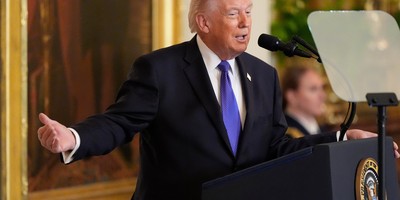"The reversal is a minor victory for the two-year-old legal battle; the Supreme Court passed on hearing the case in 2010," the news network said after speaking with Nadarkhani's lawyer, Mohammad Dadkah.
Todd Nettleton, a spokesman for Voice of the Martyrs, told CNN the ongoing international conversation has helped his case.
"I think in terms of people praying for Pastor Youcef, that has had an effect, and I think we are seeing the results of that," Nettleton said. "Iran is a bit hesitant to put this man to death, and I think that is a result of international pressure."
Harris Zafar, a spokesman for Ahmadiyya Muslim Community USA, told CNN he is surprised that more Muslims aren't speaking up in Nadarkhani's defense, and he believes Iran hopes to delay the case long enough that the international community will forget about it and move on to the next story.
Nettleton said Voice of the Martyrs will be sure to keep shining light on the pastor's plight.
"We continue to monitor the case, and we continue to talk about it on our Facebook page," Nettleton told CNN. "One way or another, people are going to know when a verdict is announced."
The American Center for Law and Justice (ACLJ) said Oct. 13 that 89 members of Congress, including 21 Democrats, have signed a letter asking Secretary of State Hillary Clinton to pressure Iran to release Nadarkhani.
Recommended
Observers worldwide are awaiting a written verdict from the appeals court, which has requested an "opinion" from Iran's Supreme Leader Ayatollah Khamenei, something ACLJ executive director Jordan Sekulow said is unusual and is unlikely to have occurred "without the growing condemnation and international media coverage of Pastor Nadarkhani's trial."
Meanwhile, Dadkah told Sekulow Friday that media reports of a retrial are incorrect. Until the ayatollah gives his opinion to the appeals court or decides the matter himself, Sekulow said, those watching the case will not know if an appeal to the Supreme Court will be required. Dadkah said he expects an opinion from the ayatollah within 20 days.
"As we have stated throughout the coverage of this trial, the judicial system in Iran operates in a substantially different way than court systems Americans are familiar with," Sekulow wrote.
"The only new information is that the Supreme Court has indicated that they would in fact 'review' an appeal by Pastor Nadarkhani. A 'review' in no way guarantees that the Supreme Court would hold yet another round of hearings and we hope and pray that an appeal will not be necessary."
Britain-based Christian Solidarity Worldwide, in an analysis of Nadarkhani's case Oct. 14, said the most puzzling part of the ordeal is that apostasy is not officially a crime under Iranian law.
But in countries such as Iran, CSW said, "apostates risk not only social pressure and rejection by their families and communities, but also pressure from the state. This pressure can include the annulment of marriages, denial of permission to travel, termination of citizenship, confiscation of identity papers, the consequent loss of social and economic rights, house-searches, and cycles of interrogation, arbitrary detention, sustained torture and court action for various supposed crimes."
No Christian has been executed officially for apostasy in Iran since 1990, and rumors surfaced in recent weeks that Nadarkhani was being tried on charges of rape and extortion or for "security crimes," though watch groups have said he is not guilty of those allegations.
" official executions for apostasy are relatively rare in Iran, in the past those deemed guilty of leaving Islam have suffered extra-judicial executions," CSW said. "Pastor Mehdi Dibaj of the Assemblies of God Church in Tehran was condemned to death for apostasy in December 1993. He was released three weeks later after a strong international outcry, only to be found murdered six months later.
"The initiator of the international outcry for Pastor Dibaj, Bishop Haik Hovsepian Mehr, was also abducted and murdered," the watch group said. "Should Pastor Nadarkhani be acquitted and released, a development which the international community must continue to seek, his problems may not be over and vigilance must be maintained in order to ensure that he and his family remain safe."
Nadarkhani, 32, was arrested in 2009 and charged with apostasy. A lower court found that while he had never been Muslim, he was guilty of apostasy because he came from a Muslim family.
Nadarkhani's refusal to recant his faith has inspired Christians worldwide. The ACLJ reported one of his court exchanges.
"Repent means to return. What should I return to? To the blasphemy that I had before my faith in Christ?" he asked.
"To the religion of your ancestors, Islam," the judge reportedly replied.
"I cannot," Nadarkhani responded.
Compiled by Baptist Press assistant editor Erin Roach.
Copyright (c) 2011 Southern Baptist Convention, Baptist Press www.BPNews.net
























Join the conversation as a VIP Member